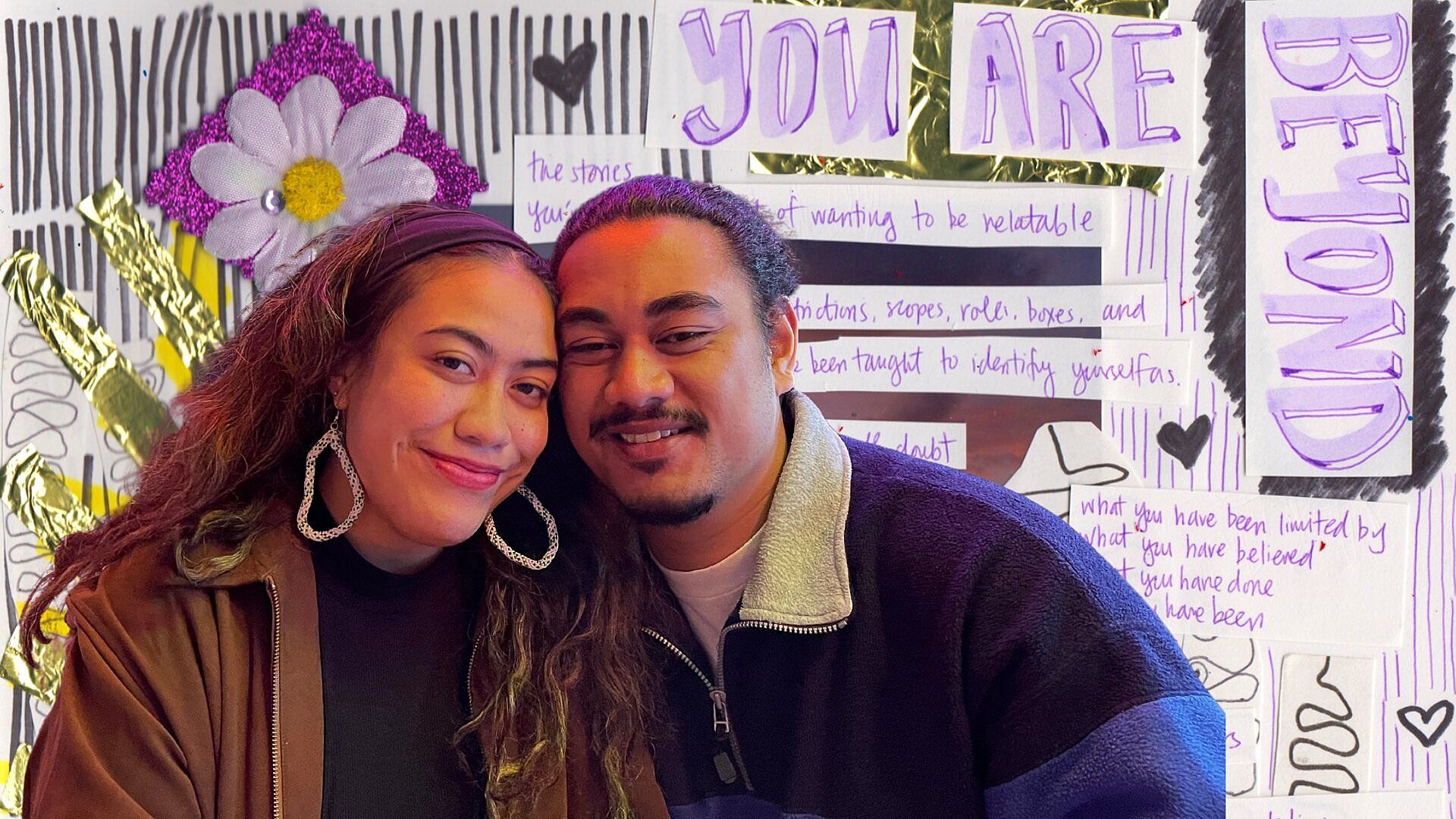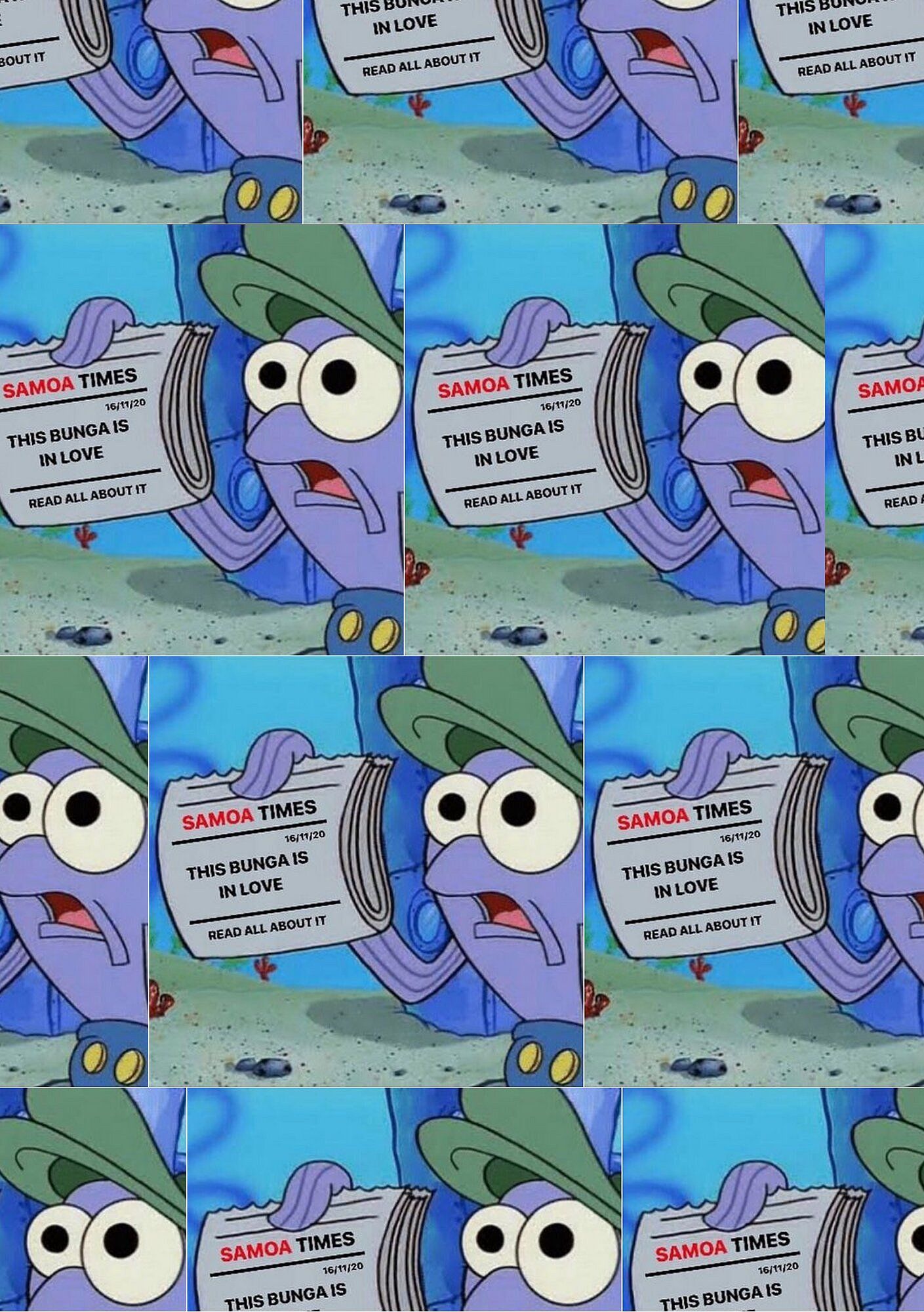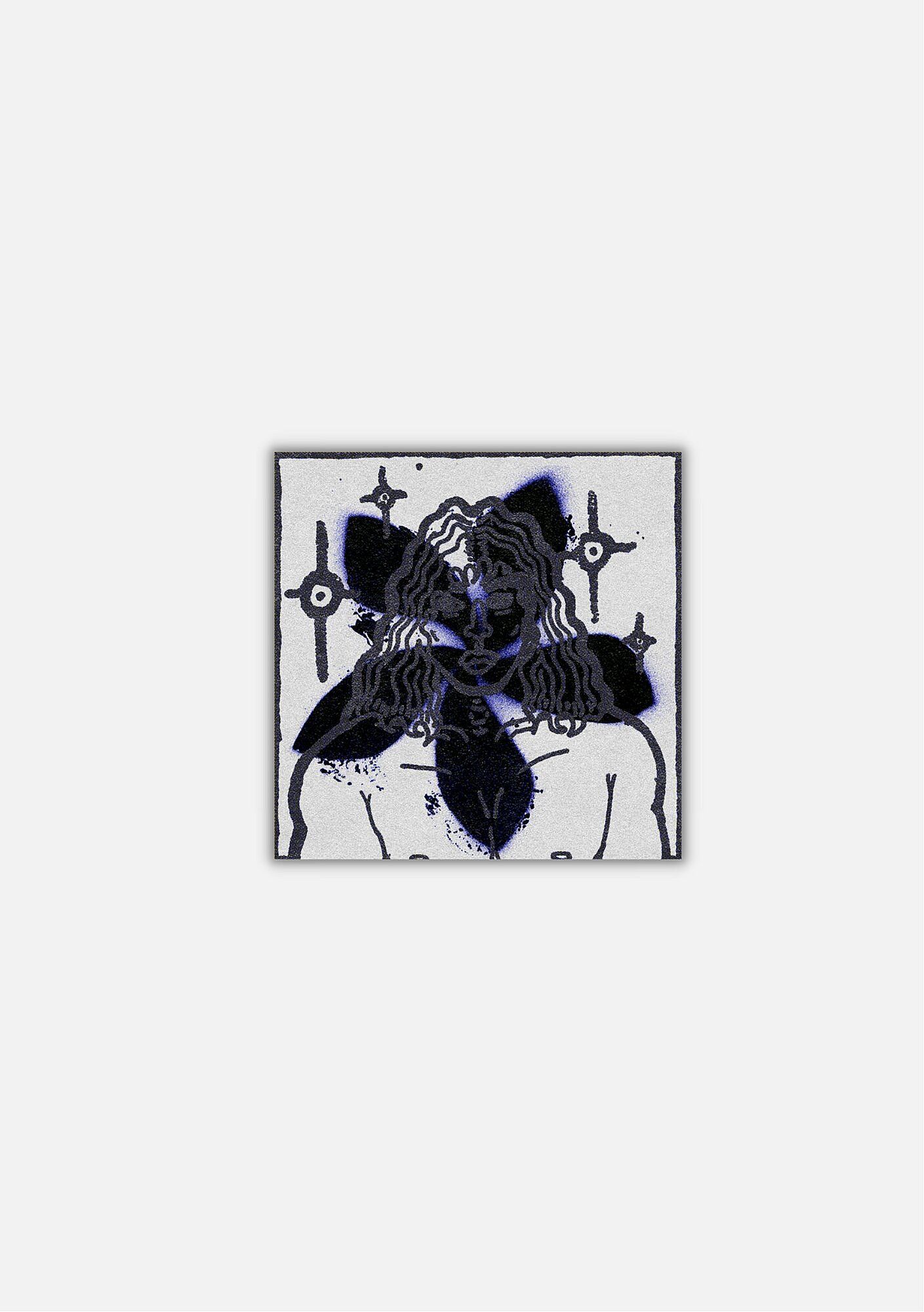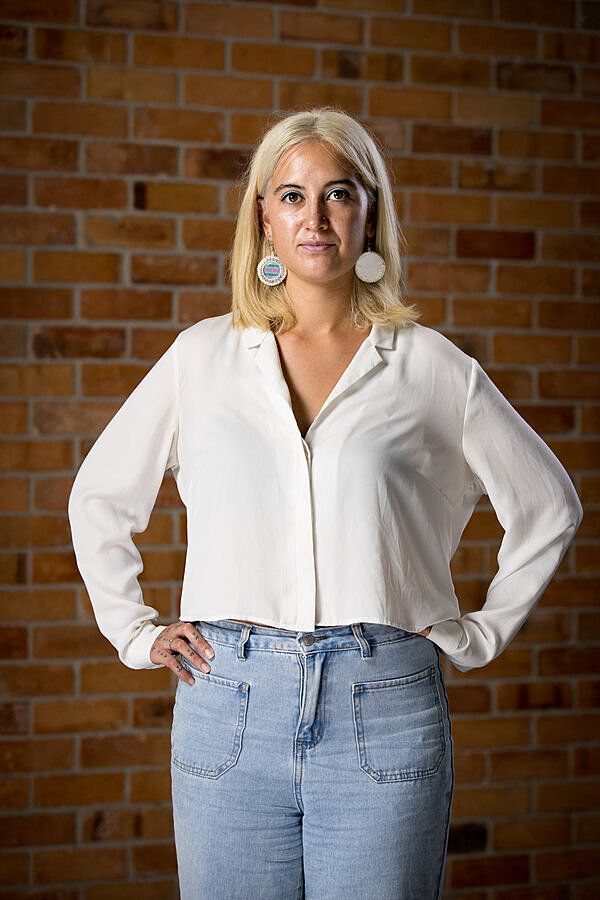Love is the Balm: A Kōrero with Lofa and Sua of Filemu Zine
Faith Wilson was so touched reading Filemu zine she had a tagi. So she spoke with the creators, a Pacific couple shining light on their experiences of love.
Have you ever had an experience with art that has left you thinking I don’t know what just happened but this is just… beyond. I guess it’s what you’d call an experience of the sublime. That’s what happened when I read Filemu, a zine made by the couple Taualofa (Lofa) Totua and Iosua (Sua) Ah-Hao. I loved it so much I bawled my eyes out. It touched me on so many levels. In the work that I do, I do everything for this. This is why I exist in this space, to witness this, to encourage this, and when I see our Pacific people shining in this space, it makes my heart sing.
Filemu was released on February 14 (aka Valentine’s Day, aka Captain Cook Death Day), and themed ‘You Are Beyond’. The theme was inspired by a collage/love letter Lofa wrote to Sua when he was going through some tough mental-health issues last year during one of the lockdowns. The zine contains poetry, writing, anecdotes, playlists, collages and visuals that detail their individual and collective ponderings on love.
Filemu was released on February 14 (aka Valentine’s Day, aka Captain Cook Death Day)
They go into their childhood experiences of love, and explore ideas of self-love and how that changes when you bring the self into a relationship. We see what it’s like for them as a couple (super cute and couple goals, btw). They urge us to think about colonialism, providing an insight into the influence it has had on their personal experiences of love in a Pacific upbringing and examples of how they were shown love generationally.
And my favourite part about the zine is that each of the four sections begins with a journal prompt, and they even provide you with a small notebook to write in. It’s a whole, deep exploration into the self, and love.
I was keen to kōrero with Lofa and Sua about the zine, the kaupapa behind it. Because the zine is so much about them together, I was eager to hear about their relationship and how their love has shaped the beautiful piece of art that made me tagi.
Faith Wilson: Tell me about the ideas behind Filemu and what urged you to start this zine.
Lofa Totua: ‘Filemu’ is a Sāmoan word and, growing up, it’s a word that I would hear from my mum, nana and aunties, telling us to be quiet or relax. I often heard it being said to my baby cousins when they were crying. As I got older, I learned more about Fa‘a Sāmoa and the gagana. The Sāmoan language is a lot more nuanced than English. Filemu is one of the words I kept coming back to, and I discovered it meant a lot more than just peace or peacefulness. I wanted to unpack that a little bit. Sua found a definition of filemu that fitted what we both needed and wanted to share: feeling safe and sound.
*
Making Filemu a zine is an idea that I’ve been sitting on for quite a while. I wanted it to be something that people can turn to time and time again. Things like love and joy are always best when shared with others. Looking at the world in its current state and what other people are writing about, there is a lot of anger, frustration, pain. But this volume and future volumes aren't meant to be inspired by the pandemic or other external events. I wanted to flip that and give people some peace and make something that gives me peace. I guess I was tired of writing about sad stuff!
I didn’t know where to start, though, so I talked to Sua about it. Sua has lots of design experience and skills, being part of the Raroboys collective. I thought it would be a fun project for us to explore together. Luckily, he said yes – well, he had no choice [laughs]. Filemu might have a different meaning to Sua than it does to me. That’s the point. Everyone has a different understanding of what settles your spirit, what grounds you. I learnt this from a dear mentor and friend, Tarapuhi; she was the one who made me realise that Sua helps to ground my spirit.
Our generation is super hopeful, and intelligent and caring. We are ready to kick ass and do what we can to save the world
Sua Ah-Hao: I felt like this needed to exist, that it was necessary for the kind of world we live in today. I thought it would be interesting to get involved, knowing that we have our own very different journey with love, our own different meaning of it.
FW: Reading Filemu, and its overt and unashamed expressions of love, and the joy of love and the necessity of it, I’m reminded of the idea of Black and Brown joy, the idea that joy is resistance. I think about it as an antidote to negative representations of Black and Brown people in the media and in our society. In the zine, there’s a piece called ‘E le fa‘atofaina le po masina’, and a line in it says, “Colonialism has taught me that it is easy but far more constantly to hate, than it is to love”. It speaks to that same idea of reclaiming love and joy. I’d like to know why you both choose love.
LT: ‘E le fa‘atofaina le po masina’ is a Sāmoan proverb, and it means ‘we don’t farewell a moonlit night’. The gist is that you don’t want something good to end; you want it to last forever. That’s how I feel about my relationship with Sua. When I think about how love is perceived today, it’s seen as something wasteful, toxic, or just unattainable. I know because I have seen it and felt that. I think that’s so sad. It’s so sad that this whole generation is almost cynical about love. They don’t quite turn up their noses at it, but they’re like, fuck that. Our generation is super hopeful, and intelligent and caring. We are ready to kick ass and do what we can to save the world. But when it comes to love, there is some pessimism out there. Understandably, though – it’s not like everyone has access to it or is born into a family that models it.
To choose love in this day and age is a radical act
To choose love in this day and age is a radical act. And it’s radical because we’re in this environment where everyone thinks it doesn’t exist and it’s not real, but I find that it’s literally the balm. It’s the healing we all need. It’s scary, and I think many people are scared of it. That we will make the same mistakes as our parents and their parents. I choose love because of that reason. Because it’s scary and because I think we’re all deserving of it.
When I look at my family structure – for a lot of Pacific families, there’s a different generational understanding of what love is and what it looks like and what it can give us. My mum and grandparents are my heroes, but that doesn’t necessarily mean they were perfect. Like everyone, there are some lessons in joy and love that I missed out on. I think this zine will help to fill the gaps – we hope it’s transformative. We just want to take care of one another in shit times.
SAH: From the many conversations I’ve had with Lofa about this, I’ve learnt that choosing love every day is to just really love yourself. A beautiful but heart-wrenching lesson learned. It took a lot of unlearning to know that a lot of the painful things and words that had been projected onto me growing up are not my fault, and that the pain I held onto and hated so much is not who I really am. I have a lot of love to give, but before I do that, I need to remind myself that I am worthy of receiving it too. It’s something I’m still trying to wrap my head around. Ever since Lofa and I started dating, I have been more open to the idea of love. This amazing union that we share has been a constant reminder why it’s important to choose love and to love yourself.
*
FW: I think it’s important to see men talking about love, especially Pacific men, because it’s not a common narrative amongst many Pacific communities. I want all our young Pacific men to know love and be comfortable talking about love.
It’s really cool that you made this as a couple. I’m obsessed with the idea that you’re this couple who have made this. What was it like working together on this, and how do you think your relationship shaped the zine?
SAH: It was fun! It was also quite stressful because we are both perfectionists – so, sorry to Lofa, I think I caused a lot of stress! I feel like a lot of our conversations, whether about love or really silly stuff, were definitely the backbone of our zine. Like you said, not many Pacific men talk about this kind of stuff. I went to an all-boys school – that wasn’t the buzz. We definitely didn’t talk about this kinda stuff. My family and I didn’t talk about these things, so writing about it was hard. Like how do I say something that I have wanted to say out loud since I was a kid? It was really nerve-wracking just–
LT: Being vulnerable?
SAH: Being vulnerable, yeah. Thanks to Lofa – she makes me feel safe when sharing certain things.
Like you said, not many Pacific men talk about this kind of stuff. I went to an all-boys school – that wasn’t the buzz
LT: I really enjoyed making this with Sua. We came together with our unique skill-sets and talents, and had lots of conversations. The different sections helped us to organise those conversations and those thoughts. The section ‘Before’ is about our understanding of love before we came together. I talk about my nana, matriarch of our family, and how she showed love through food. There’s a collage with my sister, all these other women and some Bible scriptures. There was a heavy overlap with love and religion in my childhood. Another poem I wrote, in 2019, was about trying to resist what my friends were going through with their relationships. I’m contemplating: what is my ideal mans? In the last section, ‘Everyday’, we figured we can’t love each other until we love ourselves, as cheesy as that sounds. We can’t give to one another until we look after ourselves first.
FW: That whole section I really vibed with. It’s so hard to be a person in the world, sometimes. When it feels like everything is breaking, love is the thing that saves me each time. Trying to love myself – or even just see myself, accept myself daily – seems like it opens a channel for connection with others. And I feel so blessed to know love, and to give love.
I also really enjoyed the journaling prompts and that we were provided with notebooks to respond. The prompts caused me to engage with the material in the zine on a deeper level, in a way that’s antithetical to how I consume social media, which is all at once, too much, too fast, too superficially. I don’t make enough time for journaling in my life, so it was a beautiful exercise using the time I’d generally spend on the couch on my phone, thinking about love and its place and purpose in my life. Tell me how the idea for this journal prompt came about.
We wanted Filemu to be an experience... readers to be immersed in the content but also spend time with themselves
LT: We wanted Filemu to be an experience. We wanted readers to be immersed in the content but to also spend time with themselves. I follow these journal-type pages on social media, and save the prompts for later but don’t do them. Journaling, for us, goes hand in hand with taking care of ourselves. It’s an opportunity to get to know yourself better, to unwind, let go of anxieties, and we thought it would be the perfect tool. That and music, which is why there’s a heavy music theme in Filemu.
FW: I’ll admit, the first thing I did when the package arrived in the mail was take photos of the zine, with the intent of sharing on Instagram. I have never unboxed anything in my life but it was like, this is so beautiful I want to do an unbagging lol. So I started flicking through to take pictures of the inside, then looked at the contents page, and there’s a really firm, but gentle, message there about not sharing these on social media, to uphold the integrity of the work. And I was like, ooh damn, this is serious. I like this. I like this resistance to social media. I want to understand a bit more about your reasoning for this, and how exactly you think social media has changed, and continues to change, the way we consume culture.
SAH: Part of the reason we decided to do that was that the content we put in the zine is quite personal. I wanted to be in control of what parts of me I wanted to be out there, if that makes sense. We both wanted to be in control of that.
*
LT: Both of us have had interesting relationships with social media. For Sua, he used it as a portfolio for his artwork, and then for me, it’s very much like a connector to other activists, writers, creatives. At the same time, it’s deeply toxic. We aren’t meant to be processing so much at once, even if we monitor our use.
Also, all our work and conversations don't need to be on the internet. That’s okay. I really love the kaupapa of the zine – it’s self-published, there are only a few copies produced, it’s driven by a small group. There’s some resistance in that, too.
It’s about reclaiming how I treat my sacred experiences. I no longer value being vulnerable online as a serial oversharer. I feel like I have the right to say, “actually, no, you can’t take photos of [the zine]”. It also just made sense that if we want Filemu to be an experience, to sit with it, and not allow it to be all over social media
SAH: What we put in there is raw and sacred, and the last thing I want is it to go online, and then someone just looks at it, reads it, likes it, leaves a comment, and goes on about their day. I wouldn’t want it to be treated like that.
LT: Disposable?
SAH: Yeah.
FW: Spending time with Filemu in that way, I was so excited about it, and I just want everyone to read it. But I especially want our young Pacific peeps to read it. There’s so much in there that I think is really influential and could be just the remedy our rangatahi need. Who would your ideal audience for this zine be?
I would love for young Pacific people to read this
LT: Probably Pacific rangatahi, but I also want people like my mum to read it. She didn’t grow up with those conversations normalised. I wanna say everyone is the audience, but it’s actually not for everyone. When I think back to the seasons before Sua, and who I was before Sua, I would have really appreciated something like this. As someone who is very emotional, I would have really appreciated this, especially when so much of the conversations around me were empty, talking shit, and toxic. There are kids out there who need to know it doesn’t have to be like that. If you want to feel, then feel. That’s so cheesy, but I don’t care.
SAH: I’m with you on that. Would love for young Pacific people to read this. I guess you went through similar experiences as me growing up. Many of us weren’t capable of loving or ever receiving love in the ways we wanted. It was all too confusing. Fifteen- or 17- or 18-year-old me would have wanted to read this, so I feel like that’s the kind of audience that I would love to see reading this kind of stuff.
FW: There’s this cool thread: my friend Lana Lopesi and I have talked about how, in a way, we write for our teenage selves. We didn’t have stuff to connect to then; it’s like giving back to yourself and others. It’s this generative process where it’s healing and giving.
LT: I love that.
I’m dying to know if you have plans to make more zines
FW: And because this zine is such a gift, I’m dying to know if you have plans to make more zines.
LT: Yeah. The plan is we want to put out four per year. For one of them, we would like to have other contributors. We’re not sure about the themes; this was about love… what was on our minds and hearts at the time. We’ll see. But the idea is that we also allow ourselves room to experiment as creators. Sua isn’t much of a writer, but he did really well. And the same goes for me. I’m not much of a designer–
SAH: You did great!
LT: And I had fun.
F: Lastly, you released this as a limited-edition zine on February 14, but are people still able to buy a copy? ‘Cos why wouldn’t they after reading about this beautiful kaupapa?
I suppose we could do a third print run… we’ll turn on our order form!
LT: Haha! We haven’t actually had this conversation! A lot of people want to buy it… I suppose we could do a third print run… we’ll turn on our order form! [Follow their Instagram page for updates.]
FW: I like the idea of the limited edition, though.
LT: That was also the point. Whoever it reaches, it reaches.
***
Later that day, after speaking to Lofa and Sua, I went to see my baby sister to celebrate her birthday. I was still buzzing about the zine, about the conversation I’d had with Lofa and Sua, and about the reclamation of love, the power of love to heal. Amidst the chaos and tension happening around the world and in Aotearoa, spending time with my sister and her friends, eating pizza and cake, laughing at the ridiculous way I was wearing my hat, and just slowing down and taking time to connect… I felt joy. I was able to daydream about a future where we’re drowning in love, emotionally intelligent and unafraid, forgiving ourselves and our ancestors for the unwitting effects of our and their mistakes. A future where we thrive. Filemu captures a snapshot of two people in love. It’s their space for reflection and for dreaming, and being immersed in their world reminds us that choosing love daily is a radical act.
Feature image: Nuanzhi Zheng 郑暖之。




